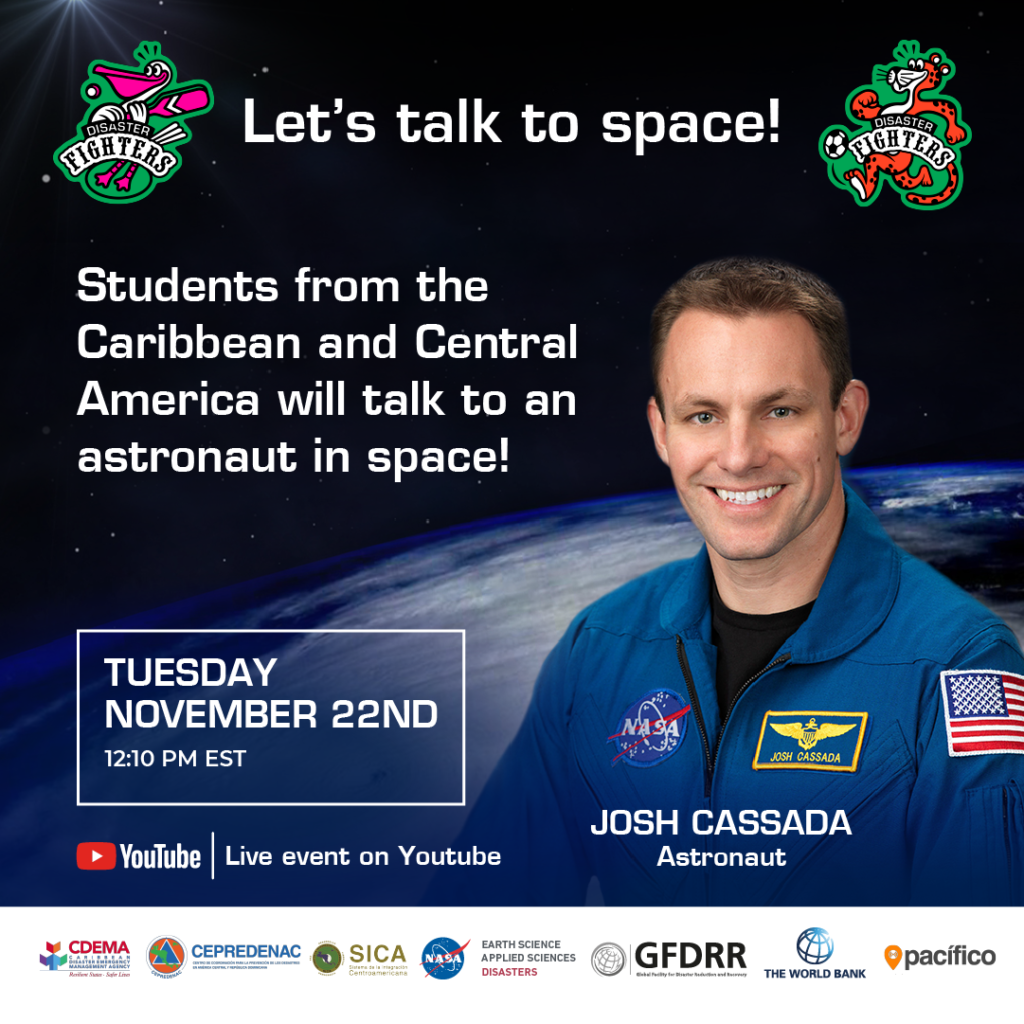SAN JOSE — Students from 12 schools in nine countries in the Caribbean and Central America will have a direct conversation with an astronaut in the International Space Station this coming week.
The students were chosen from Antigua and Barbuda, Cayman Islands, Costa Rica, Jamaica, Panama, the Dominican Republic, Saint Lucia, Saint Kitts & Nevis, and Trinidad and Tobago, via an online call for schools in 26 countries.
The 14 students will be able to speak live to NASA astronaut Josh Cassada, onboard the International Space Station, (ISS) on Tuesday, November 22, 2022, at 12:10 p.m. EST.

During this unique event, the students will have the opportunity to learn about natural hazard research and monitoring, as seen from the unique perspective of an astronaut on the International Space Station.
More than 300 questions were submitted by schools in the region. The 10 selected questions for the astronaut will be related to disaster and natural hazard monitoring such as hurricanes, volcano eruptions, tsunamis, coastal erosion and climate change, as well as improving preparedness in the region.
At this live conversation, the students from the 9 Caribbean and Central American nations will be able to ask astronaut Cassada questions ranging from: “What do you do in space?” to “Do you study and measure climate change from space?.”
The live event will be live broadcast by YouTube on Tuesday 22nd at 12:10 pm EST with simultaneous Spanish translation via this YouTube link. The activity will also be followed by schools in 26 countries which participated of this initiative.
The educational activity is promoted by Disaster Fighters, a regional communications platform to improve disaster preparedness and build resilience. The radio contact will be arranged by the Amateur Radio on the International Space Station, (ARISS), program.
This initiative is supported by the NASA Earth Science Applied Sciences Disasters program, the Global Facility for Disaster Reduction and Recovery (managed by the World Bank), the UNDRR Regional Office for the Americas and the Caribbean, the Caribbean Disaster Emergency Management Agency (CDEMA), and the Coordination Centre for Disaster Prevention in Central America and the Dominican Republic (known by its Spanish acronym CEPREDENAC). The campaign is developed by the risk communications firm Pacifico.
[wpedon id=23995]For more information, contact the Disaster Fighters team at info@pacifico.la
SOURCE: Disaster Fighters



